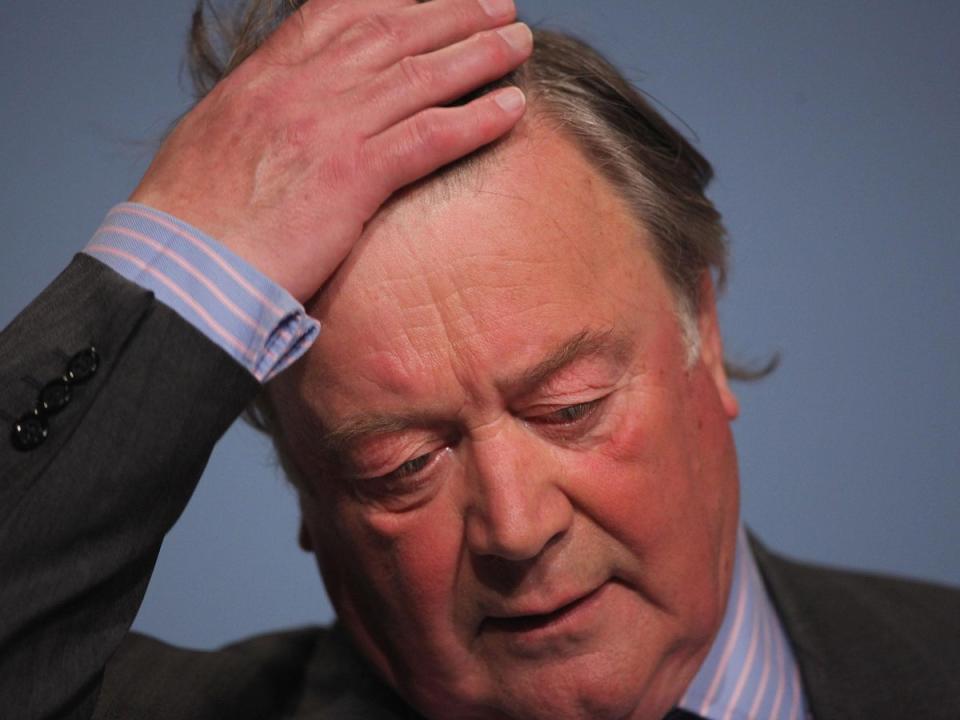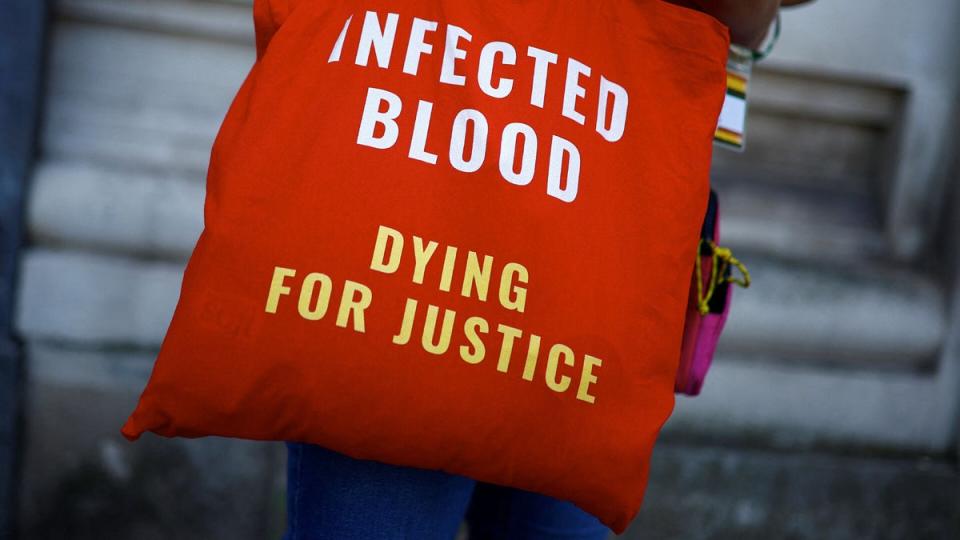Growing calls for Ken Clarke to be stripped of his peerage over infected blood scandal
Calls are growing for the former health secretary Ken Clarke to be stripped of his peerage after he was condemned for “indefensible” actions during the infected blood scandal.
Demands for Lord Clarke to be kicked out of the House of Lords are “totally understandable”, a cabinet minister said.
Mel Stride also said the Tory grandee still had questions to answer over the biggest healthcare failure in UK history.
The final report of the Infected Blood Inquiry accused Lord Clarke of "misleading" the public and attacked his "combative style" when he gave evidence.

He was criticised by the inquiry chair Sir Brian Langstaff for suggesting there was “no conclusive proof” that Aids could be spread through blood.
His claims that “campaigners attributed everything to me because I later became a well-known figure” and that they were trying to “find some celebrity whose fault it was”, were also condemned.
Clive Smith, the chair of the Haemophilia Society, said Lord Clarke’s engagement with the official inquiry had been “appalling”.
Asked if Lord Clarke should remain in the Lords, he told LBC: "We wrote to the Upper House when it was suggested that he was going to get a peerage, saying, ‘Please don’t do that yet, wait until the Infected Blood Inquiry has reported.’
"Now we have the conclusions of the Infected Blood Inquiry report, I think our letter was well-timed and entirely accurate.
"The way in which he gave his evidence (to the inquiry) was appalling."

Des Collins, a solicitor who represents 1,500 victims of the scandal, also told The Telegraph: “He should have his peerage stripped.”
Maria Armour, who contracted Hepatitis C through a blood transfusion in 1981, said: “He should definitely give his peerage up. He and Jeremy Hunt should be arrested for their deceit and the arrogance they showed during the inquiry.”
Andrew Evans, chairman and co-founder of campaign group Tainted Blood said: “I think Ken does have a role to play, but he’s certainly not the only one.”
Labour MP Dame Diana Johnson told The Independent: “It is very rare for a peerage to be removed as it requires an Act of Parliament, however some victims think he should give up his peerage voluntarily. I agree with Andrew.”
Asked if he felt Lord Clarke has questions to answer, Mr Stride, the Work and Pensions secretary, told Sky News: "There are clearly questions that are being posed, very serious questions, and to that degree indeed there are questions that need to be addressed."
He later said he “totally understands” why victims have called for Lord Clarke to be stripped of his peerage.
“I totally understand that. There will be absolutely, correctly very strong feelings about many aspects of the conclusions and what has been unearthed,” he told GB News.
In a 1983 press release Lord Clarke said: "It has been suggested that Aids may be transmitted in blood or blood products. There is no conclusive proof that this is so."
That line was repeated over the next several years.

But Sir Brian said that while it was “technically correct” the line was “indefensible. It did not spell out the real risk. It gave false reassurance. It lacked candour and, by not telling the whole truth, was misleading.”
He added: "It was not an accurate reflection of the (Department of Health's) actual understanding, which was that it was likely that Aids was transmitted through blood and blood products.
"No minister challenged the 'no conclusive proof' line. They should have done."
Ministers are on Tuesday expected to confirm details of a compensation scheme around four decades after government decided against any form of payout to those infected with HIV.
Lord Clarke, who was a health minister at the time, said there would be no state scheme to compensate those suffering what were "the unavoidable adverse effects" of medical procedures.
Lord Clarke has been contacted for comment.


